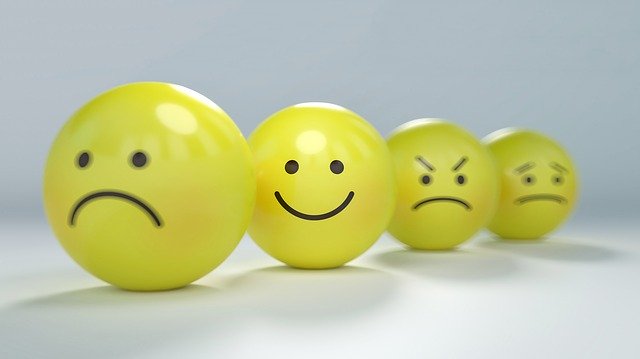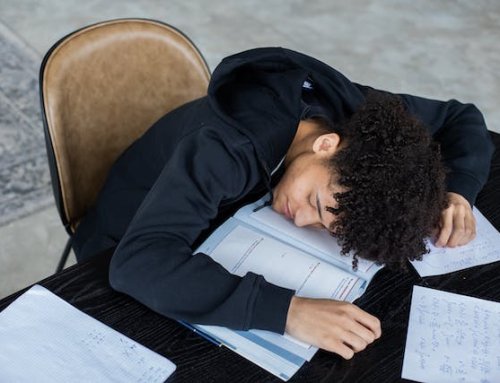Stress is inevitable. Any person can suffer from stress and anxiousness in tough situations. However, for those who have been diagnosed with mental disorders, these feelings of stress and anxiety are not temporary.
Stress can affect anyone and everyone. It is equally common in animals, especially in cats and dogs. To reduce these symptoms, you will need to show your dog to a professional vet or therapist to receive a therapy dog certification to minimize and control these symptoms.
At times, medications can be used to control anxiety disorders. However, numerous research suggests that behavioral treatment is beneficial for treating people with social anxiety disorders. Anxiety and other similar mental disorders can affect people of any age and gender.
In fact, according to the National Institute of Mental Health (NIMH), adolescents within the age bracket of 18 to 26 were noted to have the highest rate of neurological diseases. Around 4% of adults and 6% of adolescents suffer from severe anxiety disorders. The following are some common forms of anxiety disorders.
GAD (Generalized Anxiety Disorder)
GAD is defined as persistent feelings of anxiousness. People who have this mental disorder may feel anxious about financial or health-related problems. They are often unable to manage their fears and deal with uncertainty. Symptoms of GAD include sleep disorders, lack of focus and concentration, irritability, and muscle tension.
Phobias
Phobias are extraordinary fears of specific situations or objects which are disturbing.
Social anxiety
Social phobia occurs when people feel distressed or uncomfortable in various social situations. They often feel anxious and nervous in interacting and socializing with new people. They often worry about getting judged or rejected by friends, colleagues, etc. People who have social phobia often find it challenging to make new friends. They avoid going to crowded places such as concerts, malls, restaurants, etc.
OCD (Obsessive-Compulsive Disorder)
OCD is the occurrence of continuous thoughts, habits, and feelings that are uncontrollable. A lot of people suffering from OCD develop the habit of constantly washing hands in fear of getting infected with germs.
PTSD (Post-Traumatic Stress Disorder)
A lot of people tend to develop certain mental disorders after suffering from tragic physical or psychological trauma. They may have gone through a severe accident, a natural disaster, or witnessed the death of a loved one. The symptoms of PTSD may include frequent flashbacks of the incident, nightmares, or terrifying thoughts.
Benefits of taking health supplements for anxiety
Supplements can be beneficial to reduce the symptoms of stress and anxiety. If you don’t follow a healthy and well-balanced diet, then you may need health supplements to live a healthier and stress-free life. According to a study published by Harvard Medical School, the following vitamins can help in reducing the symptoms of stress and anxiety.
Vitamin A
Vitamin A is a natural antioxidant that has been proven to help minimize and control anxiety symptoms. An average dose should be around 10,000 IU daily.
B-complex
B-complex health supplements consist of all the essential B vitamins that are vital for keeping a healthy nervous system. An average dosage may vary from 300 to 500 mg per day.
Vitamin C
Antioxidants minimize oxidative damage, which elevates the symptoms of stress and anxiety. The average dose may vary from 500-1000 mg.
Vitamin D
Vitamin deficiencies can elevate the symptoms of anxiety. Vitamin D aids in the absorption of other essential nutrients and vitamins in the body.
CBT (Cognitive Behavioral Therapy)
People suffering from such mental disorders tend to hesitate to have medications or seeing a professional therapist or psychologist. However, professional psychologists possess the necessary skills and knowledge required to diagnose and treat anxiety disorders.
They can educate their patients and teach them different healthy and productive ways to deal with anxiety. Psychotherapy, which is commonly known as CBT (cognitive behavioral therapy), has found to be extremely beneficial for minimizing the symptoms of various anxiety disorders.
Through psychotherapy, psychologists can assist their patients in finding out those elements that trigger their anxiety effectively. Patients can learn how to change their thoughts processes and cope with their issues of fear, anxiety, and emotional stress. They learn different techniques and strategies to control undesired behaviors caused by anxiety disorders.
Patients are even encouraged to purposely go through those activities or situations that trigger feelings of anxiety—for example, socializing and interacting and with new people, etc.
Psychotherapy is a team effort, where the patient and the therapist collaborate to find out the problem and learn practical skills and strategies to manage the symptoms of their anxiety.
Patients can practice these new skills in public after the therapy sessions to see how well they can manage their anxiousness in real-life situations that make them feel nervous or uncomfortable.
Conclusion
With the help of natural supplements and psychotherapies, symptoms of anxiety disorders can be controlled and minimized naturally. A lot of people show a significant amount of progress right after taking the first few sessions of their psychotherapy. Psychologists can help people suffering from anxiety by developing a customized treatment plan.







Leave A Comment
You must be logged in to post a comment.